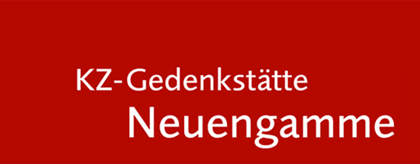09/24/2020 Project
Launch of Exhibition Project „Riga as a Place of Crime and Remembrance”
In September 2020 the Project “Remembrance place Riga – The Deportation from the German-speaking territory and the Holocaust in Occupied Latvia 1941-1944” (exhibition title TBC) will be launched at the Neuengamme Concentration Camp Memorial. The Project by Dr. Franziska Jahn and Matthias M. Ester M.A., supported by the German Foreign Office, will be in collaboration with German and Latvian Partners, who will create a bilingual travelling exhibition to this Theme.
2021 will be the 80th year since the start of the deportation from the German Reich to Riga.Between November 27, 1941 and October 26, 1942, 25 trains from the German Reich (including the connected Austria and the annexed Czechoslovakia) left to Riga. Almost 25,000 Jewish men, women and children from 16 cities and surrounding regions were affected. Only some 1080 people from these deportation transports survived Riga, the subsequent National Socialist mass crimes and witnessed the liberation.
In the second half of 2022, the travelling Exhibition of the Project will be seen in four German deportation sites, and finally will be shown in Riga, Latvia. The Exhibition, created during the Project, aims to cement Riga as a place of National Socialist crime, but also as a place of remembrance of pan-European importance in the public’s perception. The Exhibition from the Foundation of Memorials and Places of Learning in Hamburg can be lent out to other interested cities in Germany, Latvia, Czech Republic and Austria from January 2023 onwards.
The Historian and Pedagogue Dr. Franziska Jahn has since 2007 researched and publicized about the Holocaust in Latvia from 1941-1944, especially about Riga as a place of crime and remembrance. In 2018, she published her dissertation “Concentration Camp Riga-Kaiserwald and its Satellite Camps 1943-1944. Structures and Developments” in the Metropol Verlag. Franziska Jahn went to Riga multiple times for research, and knows a lot about the German and Latvian Archives. As a result, she can give valuable insights into the didactic communication of the Exhibition’s content.
The Historian Matthias M. Ester, M.A., has worked since his first stay in Riga in 2003 on the Deportations from the German regions and cities and on the annihilation events in and around Riga. In 2008, he was a part of the conception of the Exhibition „The Riga-deportations from Münster and the Münsterland.”, in cooperation with the historical place the Villa ten Hompel, and conducts regular study trips to Riga as well as Memorial-trips and advanced education for teachers and students. His knowledge about the historical and societal institutions and initiatives in Riga will become apparent during the development of the Exhibition.

